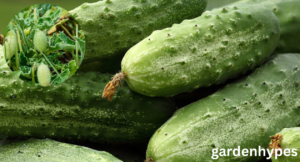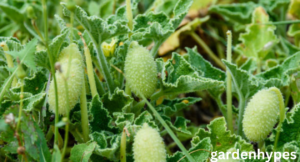Cucumber a Fruit You Thought Was a Vegetable
Introduction
The Great Cucumber Debate
Ever been munching on a cucumber a fruit and wondered—wait, is this a fruit? You’re not alone. This green, crunchy snack has stirred up quite the debate at dinner tables, science labs, and even on the internet.
click in link rabbit resistant plants
Rabbit Resistant Plants
Why This Question Even Matters
You might think, “Who cares if it’s a fruit or veggie?” But the answer actually reveals a lot about how we understand food—from farming and cooking to nutrition and culture.
What is a Fruit, Technically?
The Botanical Definition of a Fruit
Botanically speaking, a fruit is the mature ovary of a flower that contains seeds. So, anything that develops from the flower of a plant and has seeds inside is a fruit.
Fruit vs. Vegetable: The Everyday Confusion
In the kitchen, we treat cucumber a fruit as sweet and vegetables as savory. That’s why cucumbers, tomatoes, and even bell peppers confuse people—they taste like veggies, but science says otherwise.
So, Is Cucumber a Fruit or a Vegetable?
Scientific Classification
Cucumbers grow from the flower of the cucumber plant and contain seeds, which makes them a fruit in botanical terms. Simple as that.
Culinary Perspective
But in your salad bowl or stir-fry? We treat it like a veggie. That’s because culinary classification is based on taste and use, not science.
The History of Cucumbers
Origin and Cultivation
Cucumbers have been around for over 3,000 years. Originating in India, they made their way through Europe and into kitchens all around the globe.
Cucumber’s Journey Through Civilizations
Ancient Egyptians loved them. The Romans had cucumber gardens. Even Emperor Tiberius supposedly demanded cucumbers every day of the year.
Types of Cucumbers
Slicing Cucumbers
These are the ones you usually find in grocery stores—long, smooth, and perfect for salads.
Pickling Cucumbers
Shorter, bumpier, and ideal for—you guessed it—making pickles.
Specialty Varieties
From lemon cucumbers to Armenian cucumbers, the variety is wider than you’d think.
Nutritional Profile of Cucumbers
Calories and Macronutrients
Cucumbers are about 95% water and extremely low in calories—just 16 calories per cup!
Vitamins and Minerals
They’re a great source of Vitamin K, and also provide small amounts of Vitamin C, magnesium, and potassium.
Hydration Benefits
Because of their high water content, cucumbers are excellent for keeping you hydrated.
click in link rabbit resistant plants

Health Benefits of Cucumbers
Supports Weight Loss
Low in calories and high in fiber, cucumbers help keep you full without the extra weight.
Promotes Hydration
Sometimes drinking water gets boring. Cucumbers to the rescue!
Good for Skin and Hair
Packed with antioxidants and silica, cucumbers are a secret weapon for glowing skin and strong hair.
May Help Manage Blood Sugar
Preliminary research suggests cucumbers might play a role in controlling blood sugar levels.
Interesting Facts About Cucumbers
Cucumber as a Cooling Agent
Ever heard the phrase “cool as a cucumber”? There’s truth to it—cucumbers have a natural cooling effect on the body.
Used in Beauty Treatments
From eye masks to facials, cucumbers are a spa staple.
Cultural Significance Around the World
In some cultures, cucumbers symbolize health and fertility. In others, they’re part of daily rituals.
How to Use Cucumbers
In Salads and Sandwiches
Fresh, crunchy, and refreshing—cucumbers are salad MVPs.
Pickling and Fermentation
Pickles come in all flavors—sweet, spicy, sour—and cucumbers are the base for most of them.
Cucumber-Based Drinks
From spa water to cocktails, cucumbers are a hydrating twist to your favorite beverages.
How to Grow Your Own Cucumbers
Best Time to Plant
Late spring is ideal, when soil temperatures hit at least 70°F (21°C).
Sunlight and Soil Requirements
Full sun and well-drained soil are key. Cucumbers love warmth and space to sprawl.
Common Issues and Pests
Watch out for powdery mildew and cucumber beetles. Neem oil can help organically.
Choosing and Storing Cucumbers
Tips for Picking Fresh Cucumbers
Look for firm, evenly colored cucumbers without soft spots or wrinkles.
Storage Hacks for Longer Freshness
Keep them in the fridge, but away from ethylene-producing fruits like bananas to prevent over-ripening.
Cucumber Myths Busted
“Cucumbers Are Just Water”
Sure, they’re mostly water, but they pack a surprising amount of nutrients and antioxidants.
“Only Good for Garnish”
Think again—cucumbers are incredibly versatile in both the kitchen and wellness world.

Culinary Fun with Cucumbers
Recipes to Try at Home
Try cucumber gazpacho, tzatziki dip, or even cucumber sushi rolls.
Unusual Dishes from Around the World
In Japan, cucumber ice cream is a thing. In India, cucumber curries and chutneys are spicy and flavorful.
click in link rabbit resistant plants
Conclusion
So yes, cucumbers are technically fruits—but that doesn’t mean you have to start putting them in your fruit salad (unless you’re adventurous like that). Whether you’re slicing them into a salad, blending them into a drink, or using them as a skincare hack, cucumbers are one of the most refreshingly versatile ingredients around.
FAQs
Q1: Is it safe to eat cucumber seeds?
Absolutely! Cucumber seeds are soft and edible. In fact, they contain important nutrients and fiber.
Q2: Can cucumbers help with bloating?
Yes, cucumbers have natural anti-inflammatory properties and high water content, which may help reduce bloating.
Q3: How many cucumbers can I eat in a day?
There’s no strict limit, but moderation is key. 1-2 cucumbers a day are perfectly safe for most people.
Q4: Are cucumbers good for pets?
In small amounts, yes! Dogs and some other pets can enjoy cucumber slices as a healthy treat.
Q5: Do cucumbers lose nutrients when pickled?
Some vitamins like C can be reduced during pickling, but pickled cucumbers still retain fiber and add probiotics if naturally fermented.
